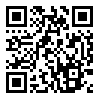Volume 41, Issue 1 (2023)
jmciri 2023, 41(1): 101-101 |
Back to browse issues page
Download citation:
BibTeX | RIS | EndNote | Medlars | ProCite | Reference Manager | RefWorks
Send citation to:



BibTeX | RIS | EndNote | Medlars | ProCite | Reference Manager | RefWorks
Send citation to:
Basamtabar S M, Molanuroozi K, Arab-Ameri E, Kashi A. The effect of a selected rehabilitation exercise program on motor development of autistic children - a single subject study. jmciri 2023; 41 (1) :101-101
URL: http://jmciri.ir/article-1-3276-en.html
URL: http://jmciri.ir/article-1-3276-en.html
Department of motor behaivior and sport Psychology
Abstract: (2435 Views)
Background: Autism spectrum disorder (ASD) is one of the neurodevelopmental disorders and the most common progressive developmental disorder associated with motor deficits, social relations, stereotyped behaviors, and movement disorders. According to the increasing statistics of autism, the problems and burden that this disorder causes for the child, family, and society, and also the necessity of providing a comprehensive rehabilitation exercise program to improve the developmental disorders of these children from childhood and elementary school ages, this issue has gained importance. Therefore, the present research aims to determine the effect of the selected rehabilitation exercise program on the motor development of autistic children.
Methods: In this semi-experimental study, autistic children (girls and boys) aged 8 to 12 years from the rehabilitation center of Tehran were selected based on HFA and IQ (70-90). After completing the consent form, the parents voluntarily participated in the research. After the pre-test, they were selected for rehabilitation exercises for 8 weeks (24 sessions) of 60 minutes. We used the single-subject research method to increase the accuracy and effectiveness of the selected training program. In the end a post-test was taken. The Bruninks-Oseretsky test was used to evaluate the results of the training program on the motor development of gross and fine skills.
Results: The findings showed that selected rehabilitation exercises were an effective measure in improving the development of motor skills (gross and fine) in children with autism. Also, both subjects showed significant growth in all subtests of gross motor skills (speed, running, and, agility), balance, bilateral coordination, strength, and fine motor skills (upper limb coordination, response speed, motor vision control, upper limb speed, and agility).
Conclusion: It seems that performing 8 weeks of selected rehabilitation exercises by improving the physiological function of muscles and the central nervous system and improving psychological abilities, increases movement skills (gross and fine) in autistic children.
Methods: In this semi-experimental study, autistic children (girls and boys) aged 8 to 12 years from the rehabilitation center of Tehran were selected based on HFA and IQ (70-90). After completing the consent form, the parents voluntarily participated in the research. After the pre-test, they were selected for rehabilitation exercises for 8 weeks (24 sessions) of 60 minutes. We used the single-subject research method to increase the accuracy and effectiveness of the selected training program. In the end a post-test was taken. The Bruninks-Oseretsky test was used to evaluate the results of the training program on the motor development of gross and fine skills.
Results: The findings showed that selected rehabilitation exercises were an effective measure in improving the development of motor skills (gross and fine) in children with autism. Also, both subjects showed significant growth in all subtests of gross motor skills (speed, running, and, agility), balance, bilateral coordination, strength, and fine motor skills (upper limb coordination, response speed, motor vision control, upper limb speed, and agility).
Conclusion: It seems that performing 8 weeks of selected rehabilitation exercises by improving the physiological function of muscles and the central nervous system and improving psychological abilities, increases movement skills (gross and fine) in autistic children.
Type of Study: case report |
Subject:
General
Send email to the article author
| Rights and permissions | |
 |
This work is licensed under a Creative Commons Attribution-NonCommercial 4.0 International License. |




